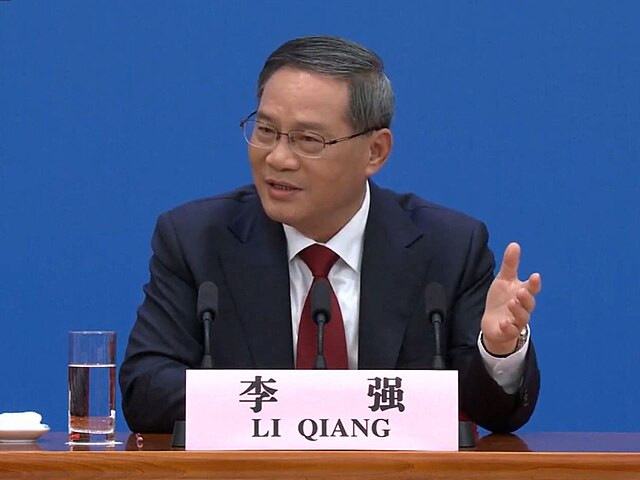China's Premier Li Qiang will forego the annual press conference that traditionally follows the close of the National People's Congress (NPC) session. This decision, confirmed by NPC spokesman Lou Qinjian, also extends to the entirety of the current parliamentary term, which concludes in 2027. This development underscores a notable shift in China's approach to public communication and transparency, particularly concerning the role and visibility of the premier.
Historically, the post-NPC press conference has served as a platform for China's premiers to engage with both domestic and international media, offering insights into the government's policies, economic strategies, and broader political stance. These sessions, initiated in 1993, have been instrumental in projecting China's commitment to openness and dialogue, especially during periods of significant economic liberalization and global integration.
The cancellation of this year's press conference, and the indication that it may not be resumed in the foreseeable future, has prompted speculation about the underlying motives and the potential implications for China's political landscape. Some analysts interpret this move as indicative of the centralization of power under President Xi Jinping and a possible recalibration of China's engagement with the global community.
Lou Qinjian suggested that the decision was influenced by plans to conduct more specialized briefings on key issues such as diplomacy, the economy, and public welfare throughout the week-long NPC meeting. However, the absence of the premier's comprehensive overview, which traditionally offered a holistic perspective on China's economic and policy directions, marks a significant change in the government's communication strategy.
Last year, Premier Li Qiang utilized the press conference to address concerns within China's private sector, emphasizing the government's supportive stance. The session provided a rare glimpse into the premier's economic outlook and priorities, contributing to a nuanced understanding of China's policy environment.
The decision to forego the press conference this year raises questions about the future of public discourse and transparency in China. While previous premiers, including Li Qiang's predecessor Li Keqiang, occasionally used the platform to reveal candid insights into China's socio-economic challenges, the current move may signal a tightening of narrative control.
Observers like Wen-Ti Sung from the Australian National University view this development as part of a broader effort by Beijing to consolidate its control over public narratives concerning China's state affairs. Sung interprets the cancellation not as a sign of mistrust between Xi Jinping and Li Qiang but as a strategic alignment with Xi's vision, with Li Qiang demonstrating loyalty by ceding the spotlight.
This shift comes at a time when China's political and economic policies are under intense global scrutiny. The absence of the premier's press conference removes a key channel through which the international community could gauge China's policy directions and intentions, potentially adding to the complexities of understanding and engaging with China in the current geopolitical context.





